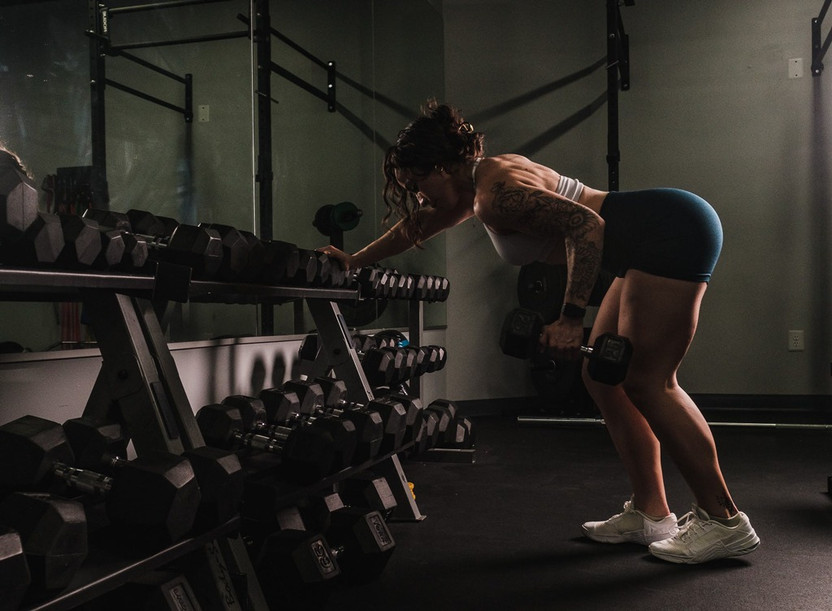How Thick Should Your Gym Flooring Be?
2023 Dec 5th
Choosing the right gym flooring is a crucial decision for anyone setting up a home or commercial gym. Among the myriad of factors to consider, one key consideration is the thickness of the flooring. In this blog post, we'll delve into the importance of thickness when it comes to gym flooring and explore specific recommendations for various settings.
How Thick is Gym Flooring?
The thickness of gym flooring can vary widely, depending on the type of flooring and the intended use of the space. In commercial gyms, where heavy equipment and free weights are often used, thicker flooring is generally preferred to provide adequate protection for both the equipment and the floor itself.
Standard gym flooring thickness typically ranges from 8mm to ¾ inch (20mm) for interlocking rubber tiles, which are a popular choice for commercial gyms. Thicker options, such as 1 inch (25mm) or more, may be recommended for areas with heavy weights and high-impact activities.
For home gyms, the thickness of the flooring can be a bit more flexible, depending on the type of exercises you plan to do. However, it's essential to strike a balance between protection for your floors and the comfort and stability needed for your workouts.
How Thick Should Gym Floor Be?
The ideal thickness for your gym floor depends on the type of activities you'll be engaging in. If your gym routine involves a mix of cardio, bodyweight exercises, and light to moderate weightlifting, a thickness of around 8mm to ½ inch (12.7mm) may be sufficient. This thickness provides a good balance of support and comfort for various workout types.
For gyms that focus heavily on weightlifting, powerlifting, or other high-impact activities, a thicker flooring option is recommended. Opting for ¾ inch (20mm) or more will offer better shock absorption and protect both your flooring and equipment from heavy impacts.
Consider the type of subfloor in your gym space as well. If you have a concrete subfloor, thicker gym flooring becomes even more crucial to absorb shock and reduce the strain on joints during high-impact exercises.
How Thick Should Home Gym Flooring Be?
When it comes to home gyms, the choice of flooring thickness is often influenced by space constraints, budget considerations, and the specific workout routines you plan to perform.
For smaller home gym spaces with limited equipment and a focus on bodyweight exercises or light cardio, a thickness of 8mm to ½ inch (12.7mm) should suffice. Thinner options are generally more budget-friendly and easier to install, making them suitable for DIY home gym setups.
However, if your home gym includes heavy equipment or involves intense workouts, investing in thicker flooring is a wise decision. Aim for ¾ inch (20mm) or more to ensure adequate protection for both your floors and the equipment, as well as enhanced shock absorption for a safer workout environment.
How Thick of Rubber Flooring for Home Gym?
Rubber flooring is a popular choice for home gyms due to its durability, shock absorption, and ease of maintenance. When deciding on the thickness of rubber flooring for your home gym, consider the intensity of your workouts and the equipment you'll be using.
For home gyms with moderate exercise routines, 8mm to ½ inch (12.7mm) of rubber flooring should provide adequate support and protection. This thickness is suitable for activities like yoga, light weightlifting, and cardio exercises.
How Thick Should Gym Flooring Be?
If your home gym includes heavy weights, power racks, or other high-impact equipment, opt for thicker rubber flooring. A thickness of ¾ inch (20mm) or more will help absorb the impact from dropped weights, reduce noise, and provide a more comfortable surface for intense workouts.
The thickness of your gym flooring is a critical factor that should align with the type of exercises you plan to perform and the equipment you'll be using. Whether you're setting up a commercial gym or a home gym, finding the right balance between protection, support, and comfort is essential for creating a safe and effective workout environment. Visit Landmark Athletics today when you need to enhance your overall gym experience.

